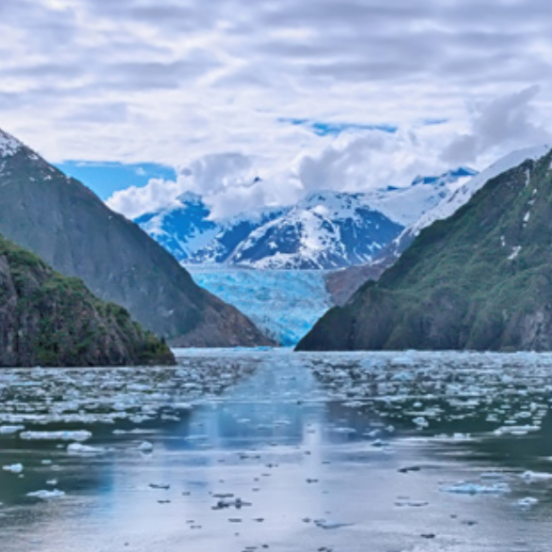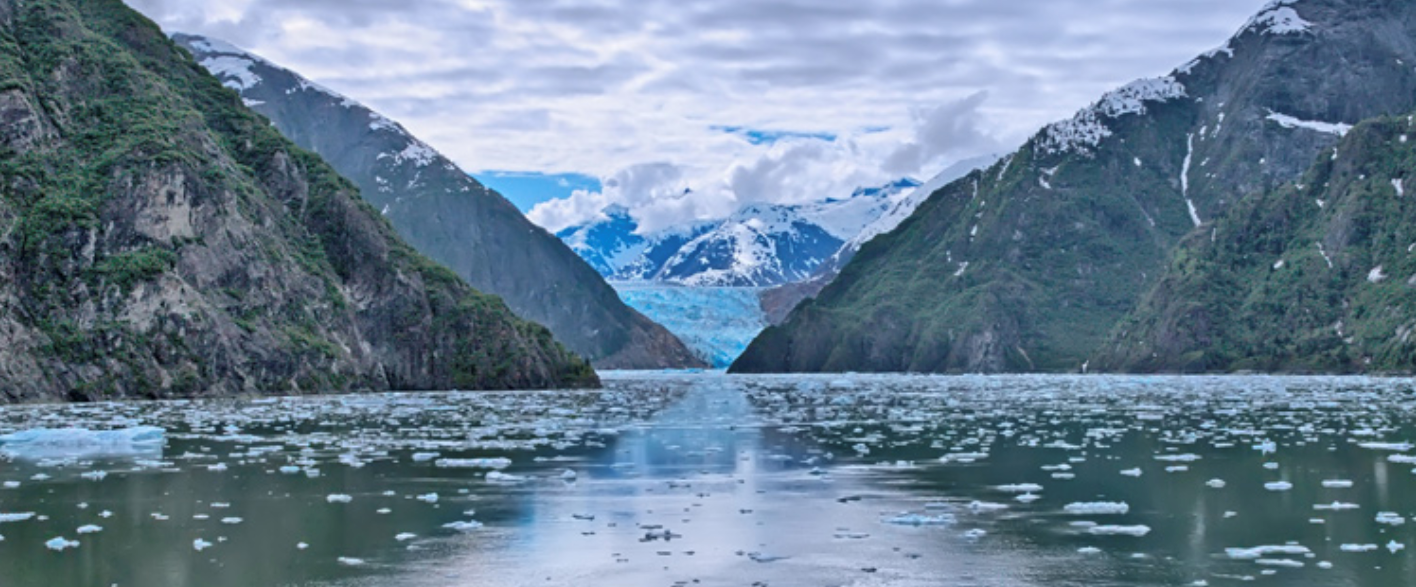Climate, Health and Equity Brief
Heating oceans, vanishing glaciers, and signs of hope
May 1, 2021

The Climate, Health & Equity Brief is GMMB’s take on the week’s news on the current impacts of climate change. If you haven’t subscribed yet, you can do so by clicking here.
Hot Topic: Cause for alarm. New research out this week warns of two daunting impacts of climate change if swift action isn’t taken to curb the world’s reliance on fossil fuels. First, a new study out of Oxford University warns that warming ocean temperatures could put a pivotal species of zooplankton at risk of extinction.
The demise or redistribution of these organisms—which, together with phytoplankton, serve as a necessary food source for other marine life—could have a cascading impact on ocean species and the communities and economies they sustain. Globally, marine fisheries provide 260 million jobs, infuse $240 billion per year into the economy, and provide a vital source of protein for more than three billion people, making the need for action “paramount,” according to the study’s lead author.
Another alarming report revealed just how fast the world’s glaciers are shrinking. Researchers found that the planet has lost an average of 267 billion tons of ice each year since 2000. That startling average hides the even more troubling fact that the rate of ice loss accelerated by 30 percent within that same time frame, from 227 billion tons per year between 2000-2004 to 298 billion tons per year between 2015-2019.
The far-reaching impacts of glacier loss include sea-level rise, which threatens coastal communities on every continent; slowing ocean currents, which help fuel extreme weather events; and species extinction, particularly among marine mammals and seabirds. What’s more, half of humanity relies upon water that originates from glaciers and icy mountain peaks—making their disappearance a grave threat to the planet’s long-term water supply.
Some good news? One positive study released this week found that moving quickly to cut emissions of methane, a byproduct of activities ranging from livestock farming to fossil fuel extraction, could slow the rate of the Earth’s warming by as much as 30 percent. Such findings offer much-needed hope—but we face a daunting road ahead in both the short and long-term unless the overwhelming evidence of our planet’s fragility spurs the world to act.
— Matt & Traci, GMMB
Health
A recent Oxford University study warns that the global marine food chain could be disrupted by the extinction of a key species of zooplankton, a vital food source for marine life that is unable to adapt to increasingly warming ocean temperatures driven by climate change. (Phys.org)
A new study found that the world’s glaciers have lost nearly 5.4 trillion tons of ice over the past two decades and that the rate of loss is rapidly accelerating, threatening a range of cascading effects to humanity and the planet. (BBC)
A new study analyzing more than 2,000 children across the U.S. and U.K. found that those exposed to high levels of traffic-related air pollution while growing up had higher rates of mental illness by the time they reached 18 years of age. (The Guardian)
A new report revealed that the U.S. Appalachian Basin is the largest source of greenhouse gas emissions in the U.S., with more than 500,000 abandoned oil and gas wells and coal mines contributing to 2.4 million tons of methane—the equivalent of 30 million cars—last year. (Our Daily Planet)
A new study revealed that cutting global methane emissions in half by 2030—a feat achievable through existing technologies—could slow the rate of planetary warming by 30 percent and fend off some of the most severe impacts of climate change. (The Washington Post)
“Action on climate change is urgent. The more we delay, the more we will pay in lives and in money.”
– Ban Ki-Moon, former UN secretary-general
Equity
A recent report revealed that air pollution disproportionately affects communities of color in the U.S. regardless of geographic area, demographics or the type of pollution source. (Bloomberg)
A new study found that 72 percent of the global population living in developing nations also face natural resource insecurity due to extraction in their countries outpacing Earth’s rate of regeneration to meet demand from wealthier nations. (Earther Gizmodo)
Politics & Economy
A new report revealed that planetary warming fueled by climate change could reduce global economic output by as much as $23 trillion annually by 2050 due to falling crop yields and the destruction of coastal cities from rising sea levels. (The New York Times)
A new study revealed that inconsistent measuring and reporting methods have led to a 5.5 billion ton discrepancy in annual greenhouse gas emissions reported by heads of government—complicating efforts to track global climate progress and ensure that countries are meeting crucial emissions targets. (The Washington Post)
Action
President Biden announced that the U.S. will partner with several other nations to develop climate-related innovations and push for a clean energy transition within the industrial, power and agricultural sectors. (The Hill)
Germany’s highest court ruled that climate justice is a “fundamental right” and ordered Angela Merkel’s government to expand its plan to reduce carbon emissions to zero by 2050 and make long-term commitments that address climate change. (The New York Times)
California Governor Gavin Newsom (D) issued a first-in-the-nation directive that orders the state’s Department of Conservation to stop issuing new fracking permits by 2024 and sets a 2045 deadline for phasing out all oil extraction in the state. (The New York Times)
Food website Epicurious—a subsidiary of Condé Nast —announced that it will no longer publish recipes using beef due to the environmental harm caused by cattle farming. (The Washington Post)
Fast food corporation Yum! Brands—parent company to KFC, Taco Bell and Pizza Hut, among others—announced a new commitment to cut emissions by 46 percent by 2030 and achieve net-zero emissions by 2050 at its more than 50,000 restaurants and throughout its supply chains. (Environment and Energy Leader)
Kicker
Ever wonder what climate change tastes like? Check out this limited-edition “Torched Earth Ale” from New Belgium featuring less-than-ideal ingredients that would be left for breweries in a climate-ravaged future.






